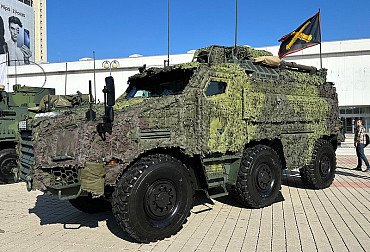USA is about to enhancing Arctic presence: A response to rising Chinese and Russian military activity
In recent years, the Arctic region has witnessed an uptick in military activity, predominantly led by China and Russia. Against this backdrop, General Gregory Guillot, the newly appointed head of US Northern Command (NORTHCOM) and North American Aerospace Defense Command (NORAD), has articulated the necessity for an augmented US military presence in the Arctic. Guillot's call to action comes amid growing concerns over China's and Russia's militarization efforts in the region, posing potential challenges to US national security interests.

China's strategic maneuvers in the Arctic have raised eyebrows within the US defense establishment. Guillot highlighted China's maritime activities, often veiled under the guise of scientific research, as a cover for multifaceted military operations. He underscored China's intent to expand its presence in the Arctic, signaling an imminent deployment of aircraft along the US Air Defense Identification Zones, potentially as early as this year. Such developments warrant a proactive response from the United States to safeguard its territorial integrity and strategic interests.
In addition to China's assertive actions, Guillot also noted Russia's escalatory moves in the Arctic. Recent sightings of Russian aircraft near US Air Defense Identification Zones, coupled with the deployment of icebreakers, underscore Russia's ambitions to consolidate its foothold in the region. The GIUK gap, a critical maritime chokepoint, has witnessed increased Russian activity, posing challenges to regional stability. However, Guillot highlighted the successful monitoring and interception efforts undertaken by US and Canadian forces, demonstrating a robust defense posture in the face of adversarial threats.
Hypersonic capabilities have emerged as a focal point of concern for US defense planners. Guillot emphasized the destabilizing potential of hypersonic missiles, citing their unprecedented speed and maneuverability. Acknowledging China's purported lead in hypersonic technology, he stressed the imperative for accelerated development of defense systems to counter this evolving threat landscape. Guillot's remarks underscore the need for enhanced strategic foresight and resource allocation to mitigate emerging security challenges effectively.
Furthermore, the issue of Arctic infrastructure and logistical capabilities has come under scrutiny. Guillot highlighted the glaring disparity between US and Russian icebreaker fleets, posing constraints on US military operations in the Arctic. While acknowledging the Coast Guard's efforts to procure additional icebreakers, Guillot emphasized the need for sustained investment to bolster US capabilities in the region. The forthcoming release of an updated Arctic Strategy by the Pentagon signals a renewed commitment to address evolving security dynamics in the Arctic domain.
In response to these multifaceted challenges, Guillot outlined a comprehensive approach aimed at strengthening US presence and resilience in the Arctic. He emphasized the importance of conducting joint exercises and patrols along Alaska's coast, in collaboration with international partners, to demonstrate resolve and deter potential adversaries. Guillot's proactive stance reflects a nuanced understanding of the evolving threat landscape and underscores the imperative for adaptive responses to safeguard US national interests.
As Guillot embarks on a comprehensive review of NORAD and NORTHCOM's capabilities, his testimony underscores the need for a holistic approach to homeland defense. The 90-day assessment period initiated by Guillot aims to provide actionable insights to policymakers and stakeholders, guiding future investments and operational priorities. In an era defined by geopolitical uncertainty and technological innovation, Guillot's leadership heralds a proactive posture aimed at securing US interests in the Arctic and beyond.
In conclusion, General Gregory Guillot's testimony underscores the imperative for a proactive and multilateral approach to address rising Chinese and Russian military activity in the Arctic. By bolstering US presence, enhancing defensive capabilities, and fostering international cooperation, the United States can effectively navigate the complex security landscape of the Arctic region, safeguarding its strategic interests and promoting regional stability.








